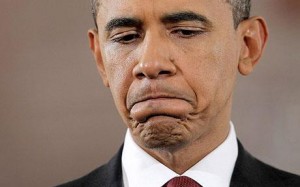“As the dust settled on a midterm election that significantly altered the political landscape, voters sent a clear message that cutting the deficit and ending wasteful government spending should be top priorities for Congress. Americans will be watching closely to see if lawmakers got the message. Eliminating ethanol subsidies and trade protection would be a good way to indicate that they did,” writes Joel Velasco, UNICA Chief Representative of North America in response the the Mid-Term Election results that took place across the U.S. on November 2, 2010.
 Similar to two years ago when President Obama was elected, Americans asked for change. Only this time, its wasn’t Democrats they were asking to help make it. Republicans made a strong gain in this election with their promises of balancing the budget, cutting wasteful spending, fixing the economy, and creating jobs.
Similar to two years ago when President Obama was elected, Americans asked for change. Only this time, its wasn’t Democrats they were asking to help make it. Republicans made a strong gain in this election with their promises of balancing the budget, cutting wasteful spending, fixing the economy, and creating jobs.
Along these same lines, UNICA has been heavily campaigning in recent months to end the ethanol tariff and open up the marketplace for ethanol. They argue that this will help save Americans money at the pump, create greater diversity, and provide access to cleaner alternatives like sugarcane ethanol.
Velasco continued in his blog post, “Democrats and Republicans have vowed to work together on this issue, hinting that the days of $6 billion per year in ethanol tax credits could be over when they expire on December 31. Senator Saxby Chambliss (R-GA), the top Republican on the Senate Agriculture Committee told Bloomberg News that “[t]here are folks who ideologically don’t want to see the tax credit,” noting that the election results were sure to strengthen that viewpoint.”
The U.S. corn ethanol industry may be getting the message on competition and the need to remove trade barriers on cleaner, more affordable energy,” writes Velasco. “During a conference call with reporters this morning, the president of the Renewable Fuels Association [Bob Dinneen] reiterated his support for setting the ethanol tax credit and import tariff at the same amount – a concept industry insiders refer to as “parity”.
Velasco concluded, “The next several weeks will be an important litmus test in determining whether or not Congress has truly heard the American people. Tough decisions will be need to be made to cut the deficit and restore fiscal responsibility and bipartisanship to Washington. Ethanol policy is a good place to start.”

